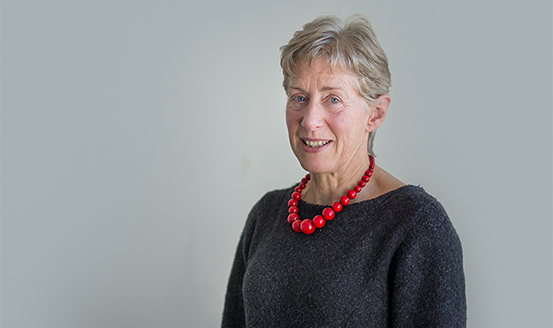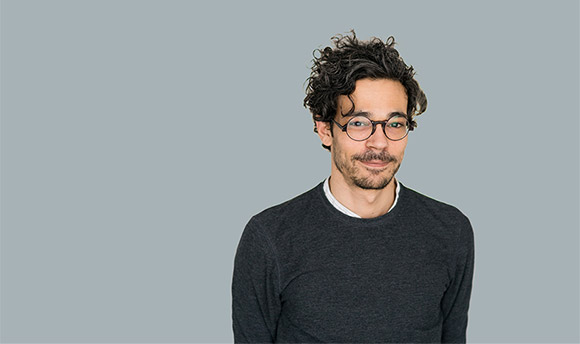Shaping refugee integration policy and practice globally
Why we need research to address the problems associated with refugee integration
One of the most significant issues facing communities across the world is the movement of refugees from countries affected by conflict, unrest, poverty, natural disaster and persecution. The enormity of the challenges in adapting to life in a new country cannot be overstated. Most refugees have to learn a new language, navigate a new culture, acquire new skills and develop a new way of living while dealing with trauma and the loss of family, friends, homes and jobs.
There are also challenges for established communities to adjust to welcome and include the newcomers.
Across the globe, there has been a lack of understanding about what refugees actually need to help them build a new life and sense of belonging in a new country. Such effective integration is crucial in allowing refugees to adapt and embrace to their new surroundings and become active citizens who have social connections, and who contribute positively to their new communities.
Lack of investment in integration and a lack of coherence in provision for refugee communities has led to prolonging the dependence of resettling refugees (resulting from factors including limited access to basic languages classes, insecurity of legal status, inadequate and short-term housing, or lack of effective routes into employment, poor mental health). This in turn prevents the building of new social networks and instead provokes isolation and distrust between refugees and members of their new communities undermining the development of strong cohesive communities.
- About our research
- Key result
- Making a difference
- Academics involved
The University developed a framework called the ‘Indicators of Integration’ which has shaped debate on refugee integration and has focused attention on the unequivocal need for social connection and its impact on access to rights and services, and refugees’ opportunities to live independently.
QMU’s ongoing policy, practice and community focused research has shaped the Scottish Government refugee integration policy, along with other integration policies globally – particularly in Australia and the USA. The knowledge gained from our research has influenced the design of major support programmes for refugees, helping agencies involved in service provision to prioritise building ‘connectedness’.
The research highlights the importance of the diversity of connections essential to building a new life and developing integrated communities - including reuniting families, building friendships with other migrants as well as between newcomers and settled community members. To feel at home and live independently people need connections to services such as housing, language provision, education and health, but they also need opportunities to participate in, for example, their own particular religious communities, or leisure activities. Our research is being used to identify refugees’ levels of trust in both personal relationships and in services. In this way, services can target their work more effectively to help build supportive social networks and access to crucial services.
(1) QMU’s research for the Home Office - The research broke new ground in providing a holistic model of refugee integration by bringing community members and refugees themselves, as well as experienced service providers and policy makers, into the conversation. This approach identified ten distinct domains of integration each of which requires distinct policy measures - but which are also interdependent – requiring a cross-sector approach to integration policy. It also enabled the importance of social connections to emerge very clearly as a hugely important factor for people themselves. It was clear that a whole range of types of connection are valued, and play a crucial role in enabling integration – from the chance encounter in the street (friendly or hostile?) to the forging of deep relationships that become ‘like family’ to those who have lost their families.
(2) Using the framework, one research project, conducted in collaboration with the Scottish Refugee Council, identified key areas which need to be addressed to improve future integration: significant delays in welfare benefits payments; conflicting demands on refugees undermining their access to language classes; the detrimental effects of housing policy on education and the development of social networks. Clear evidence emerged of the importance of beginner level language support across all domains of integration, and challenges in finding employment – especially commensurate with refugees’ pre-migration educational/skill levels. This insight into difficulties faced by refugees is crucial in helping government and agencies shape future services/provision to improve integration in the future.
Getting a better understanding of the impact of social connections
(3) A mapping exercise looking at social connections was tested in different refugee resettlement and humanitarian situations. The tool uses group exercises and confidential individual surveys to measure the strength of connections within a network/group of people (such as refugees) by asking about the people and organisations that they have actually been in contact with and how much they trust them.
For example, the approach has been used to research patterns of social connection and access to services in both humanitarian and resettlement situations. For example, a study amongst displaced Iraqis revealed disparities between resources available to women and men, for meeting basic needs, resolving community disputes and addressing domestic violence.
(4) The social connections approach is currently being deployed in diverse studies. For example, one study is addressing access to healthcare for displaced Congolese and Somali people in African countries. Another is mapping the development of the social networks of refugee families receiving integration services across the UK. A recent study has investigated the impacts of COVID restrictions on refugees and asylum seekers in Scotland.
(5) QMU’s specialist research has provided key insights which are helping organisations in the UK and beyond improve refugee integration, thereby positively impacting the lives of millions of people across the globe. An example of these organisations include: UK Home Office, Scottish Refugee Council, British Red Cross, Freedom from Torture, International Federation of the Red Cross, International Organisation for Migration, Governments of Victoria and New South Wales, Australia, State of Texas, USA, Government of Canada.
Academics involved in leading/contributing to this research:
Alison Strang, Senior Research Fellow
Alastair Ager, Director of the Institute for Global Health and Development at QMU
Oonagh O’Brien, Lecturer
Arek Dakessian, Research Fellow
Leyla Kerlaff, Research Fellow
Helen Baillot, Research Fellow

